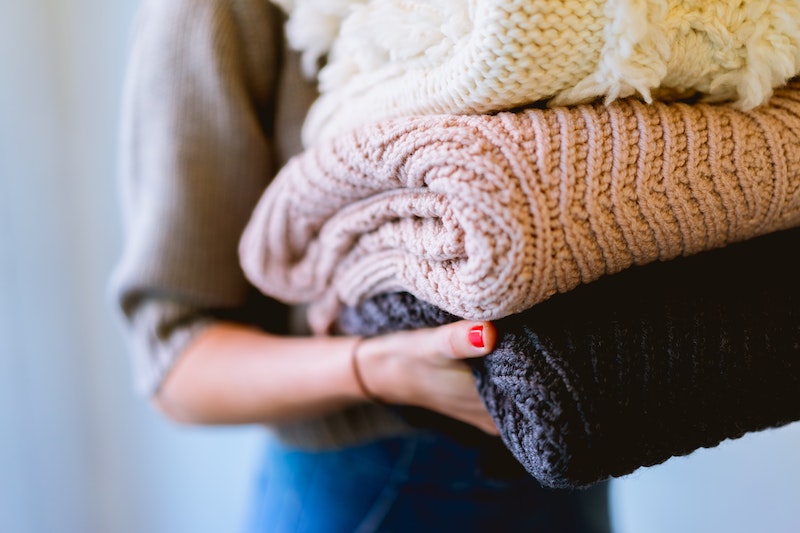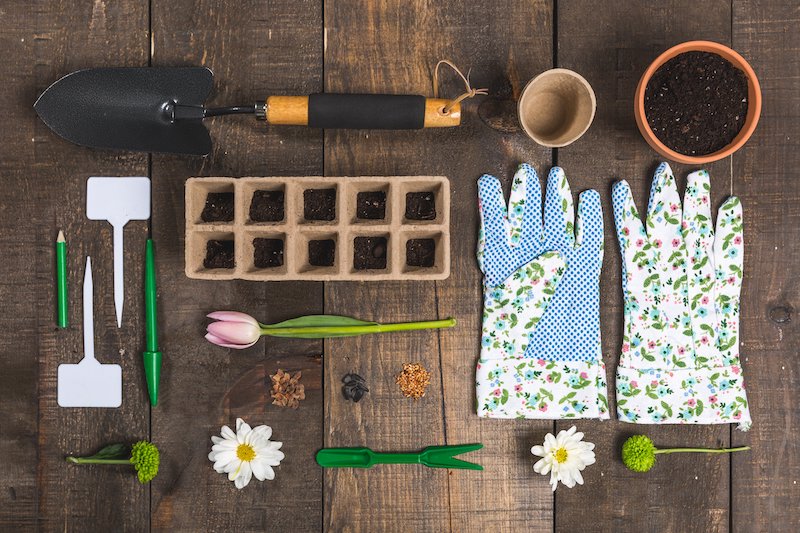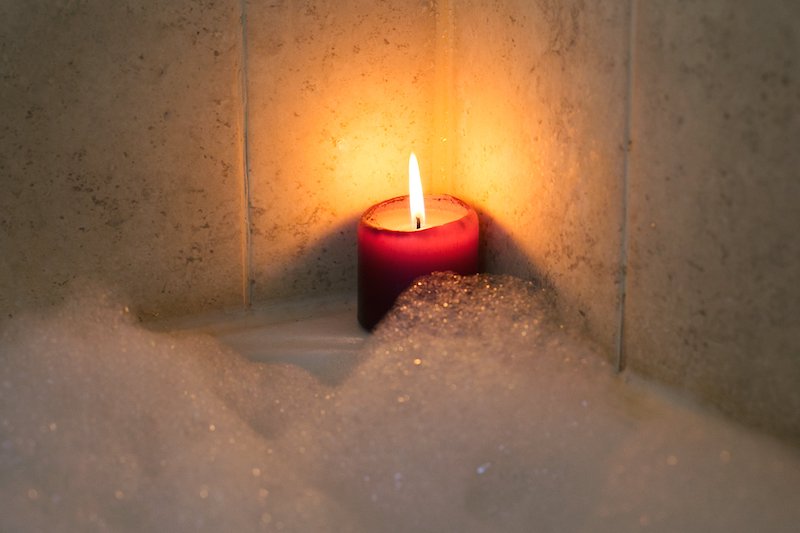
Written by Karlyn McKell
The novel coronavirus has many of us spending more time at home these days, and with higher stress levels. Learning how to stay healthy at home is essential for a well balanced mind, body and spirit, and the key to doing so lies in our daily habits and routines.
Below, we discuss healthy habits to adopt with all of this extra time at home. From practicing gratitude to eco-friendly projects, we’ve got you covered with a list of activities that are good for the soul.
Don’t binge on the news
Let’s start here. It can be tempting to watch the news day in and day out during a pandemic for the latest updates, but this isn’t doing anything good for your mental health.
Rather than glueing yourself to your phone or television, set aside a time to catch up on news once a day (or if you can swing it, once every other day). You should limit this to 30 minutes to an hour at most. You’ll be surprised at how much a news detox can destress your day-to-day life and allow you to fully live in the present moment.
The Center for Disease Control and Prevention (CDC) recommends these activities in addition to your news detox:
- Take breaks from watching, reading, or listening to news stories, including social media.
- Take care of your body. Take deep breaths and stretch.
- Try to eat healthy, well-balanced meals; exercise regularly; get plenty of sleep; and avoid alcohol.
- Connect with others. Talk with people you trust about your concerns and how you are feeling.

Participate in virtual workouts
Exercise is the magical elixir of life. Physical activity offers immediate benefits, including brain health and reduced anxiety. Further, it reduces your risk for many illnesses and keeps your immune system strong. Should you contract a virus, a healthy body will help fight the virus off. For more benefits of aerobic exercises, check out this article.
While your gym might be closed down right now, you still need to find ways to burn calories at home. Exercise offers a wide range of benefits, both mental and physical. Exercising regularly can improve your mood, your work, and cut down on feelings of anxiety or brain fog. For a deeper dive take a look at this article on the health benefits of exercise.
Even if you don’t like the idea of an at-home class, try signing up for a virtual class from a local studio. This will also help the studio keep their doors open during hard times for local shops. You can also find tons of free videos, such as Yoga with Adriene, online and look to social media influencers for quick workout routines you can do from home.

Take Long Walks
Prioritize being active every single day. This doesn’t mean you have to get a full workout in, though. For those days when your muscles are sore or you just don’t feel up to your workout routine, opt for a long walk instead.
While on your walk, take time to be present and notice the things around you. What flowers are blooming throughout your neighborhood? What looks different today than the last time you got outside?
Eat healthy, well balanced meals
Even stuck at home it can be tempting to order takeout or reach for the snack cabinet. Curb bad behaviors by meal prepping well balanced meals for the week. You can treat yourself to one night of takeout from a local restaurant to help stimulate your economy, but you should be cooking at home the other six nights a week.
Get yourself excited about cooking by ordering a new kitchen gadget you’ve had your eye on, such as an air fryer or a dutch oven. This will let you experiment with fresh recipes and new cooking techniques.
Now is also a good time to start a food log. If you often find yourself tired or if your body is irritable after eating, get to the bottom of what’s happening in your gut. This diary will help you better understand what ingredients are affecting you, and how. It’s much easier to track your eating habits at home than say, at the office, when you may have forgotten to jot down a free donut snack.
Bake sweets to eat
While you want to prioritize clean eating while at home, remember that balance is key. Learning to bake some sweet treats in quarantine can help lift your spirits. One study found that cooking and baking can add happiness to our daily lives by letting us get creative. Plus, baking is known to reduce anxiety and increase feelings of relaxation.
Next time the stress of 2020 is getting you down, find a new recipe and get to baking! You can also connect with others by participating in an online baking challenge, such as learning how to bake banana bread. You can take pictures or video as you go to show off your finished product online.

Rearrange Your Furniture
You can refresh your space without splurging on redecorating by doing a little rearranging. This can help bring positivity into your home by brightening up your space. Prioritize circulation and air flow by reducing clutter and leaving space between furniture.
When rearranging, prioritize large pieces of furniture as these should serve as the focal point of your room. Cozy touches such as blankets and candles go a long way, and you can replace pillowcases as a cheap redecorating hack to bring new colors into your space.
Potted plants and other greenery can help purify the air in your home. Plants also help boost your immune system, which can help keep you healthy and fend off COVID-19 and other viruses.
Schedule Zoom hangouts
Wednesday night happy hours and in person book clubs may not be on your fall 2020 calendar, but that doesn’t mean you have to skip seeing friends and family altogether.
Even though in-person social interactions should remain limited, you can (and should) still check in with friends and family virtually. Zoom and other video apps make this easy as you can set up chats with multiple people and all login from your smartphone, computer or tablet.
Get creative with your Zoom hangout by playing games, such as Jackbox, or having an activity such as a cooking class to keep the conversation flowing. Remember that Zoom fatigue is real, though, so keep these hangouts to 2-3 times per week and log off after an hour or two.
Stay hydrated
Keep your body strong and able to fight off infection by prioritizing hydration. There’s no excuse to not drink the recommended 8 cups of water each day while at home. There’s even a reusable water bottle you can order off Amazon that measures exactly how much water you should drink in a day.
Spice up a boring cup of water by adding in lemon or other flavoring. Remember that drinking a glass of water when you wake up can help fuel you in the morning and a glass of water before each meal helps curb overeating.

Compost At Home
Did you know that nearly 25% of waste in American households comes from food scraps? There’s a better way to reduce kitchen waste, and in addition to being good for the environment, it’s also good for your garden and potted plants.
A home composting project allows you to turn kitchen scraps into healthy soil feeder. This is the perfect activity to do at home, and you can customize your compost pile to fit your spaces needs.
Materials such as leftover coffee grounds, egg shells, old flowers, and newspaper can all be composted along with most vegetables and fruit scraps.
Start a reading list
There’s never been a better time to break open a book and escape to a magical faraway land. Reading can replace unhealthier habits (such as Instagram scrolling) all while inspiring creativity and teaching you something new.
Reading expands your vocabulary, reduces stress and alleviates depression. And while it is a solitary activity, you can easily start up a virtual book club to discuss your readings with friends if you are craving social interaction.
If you’ve been active in the social justice discussions going on in 2020, reading books written by minorities can be a great way to further understand the experiences many are sharing online.
Reading nonfiction books can also help grow you in your career and groom you to be a better leader. Learn how to approach work conflicts with confidence through self help books.
Learn a new language
International travel might be cancelled for 2020, but that doesn’t mean you can’t transport yourself to another place through the power of language. Americans will begin traveling again one day and if you have a specific destination or culture you want to learn more about, now is a great time to learn its native tongue.
Like reading, learning a new language has many cognitive benefits in addition to cultural ones. It boosts brain power, improves memory, and enhances the ability to multitask. When traveling abroad, many citizens in other countries value Americans who at least try to speak the native tongue so this can be a great way to impress and negate negative stigmas while abroad.
There are many language apps, such as Duolingo, available. You can also join online chats and groups that let you connect with native speakers online.

Even in these stressful times practicing gratitude can transform your outlook and your life. Get a journal and jot down three things you are thankful for every day. Work this into your morning routine and at night, recap your day and write down your favorite moments.
Gratitude can help us live better in the present moment because it reminds us to relish good experiences and remember positive memories in our lives.
Not only will gratitude give you a new perspective, it will also help record your time in quarantine so you can look back and see what you accomplished during this extra time spent at home.
Design a nighttime routine
Getting a good night’s sleep is important for a healthy immune system and it will also keep your mood and energy level’s up during the day. Many Americans are experiencing more anxiety than ever before and this is impacting their sleep cycles.
Outsmart your anxiety with a purposeful nighttime routine that focuses on getting you relaxed and ready for bed. Here are a few simple steps for an effective nighttime routine:
1. Eat dinner early in the evening
Eating dinner early means that your body can begin digesting faster, which will help when it comes time to lay down. This is because digestion speeds up your heart rate which can in turn keep you up at night.
2. Put your screen’s away at least an hour before bed
Scrolling on your phone isn’t just a big waste of time, it also keeps your mind awake. The blue light from your device tricks your body into thinking it’s daytime. Limit screen time in the evening, especially the hour before bed time.
3. Lay out your outfit for the following day
Be productive with low level tasks that don’t require much thinking at night. Even if it is just sweatpants, laying out your clothes for the following day takes one thing off your morning to-do list and will help you feel accomplished and less anxious when you lay down.

4. Decompress with a relaxing activity
Before you lay down, do an activity that relaxes you to help your body wind down. Reading, coloring or taking a bath are all three great ways to get your body restful and in the mood for sleep. Practicing meditation or yoga can also help calm your mind and relax your spirit.
Try lighting candles, dimming the lights, and putting on a relaxing sound as you complete your relaxing activity.
5. Have a scheduled bed time for lights out
Whether you realize it or not, your body craves rhythm. Having a nightly schedule with a specific time for lights out will get your body in the habit of getting tired around this time each night. While certain nights things are bound to happen, aiming to be in bed with the light’s out by 10 will actually make it easier for you to fall asleep each night.
Learning how to stay healthy at home will help ease the mounting stress many of us are feeling due to the coronavirus pandemic and state of the world. Embrace the present moment and remember to be grateful for all the things you do have, including this extra time to spend with yourself to adopt new habits and hobbies.





Leave a reply